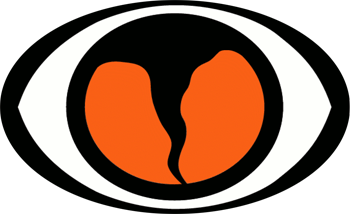The National Weather Service office in Cheyenne will be offering storm spotter training classes this season.
All classes are free of cost and open to anyone with an interest in weather.
Click here for the interactive schedule & map
| Basic Storm Spotter Training | Advanced Storm Spotter Training |
| 60 to 90 minutes | 90 to 120 minutes |
|
|
Severe Weather Spotter Training Guide | Winter Weather Spotter Training Guide
SKYWARN Spotter Training Schedule - Spring 2026
| Wyoming In-Person Spotter Training Sessions |
|
| Nebraska In-Person Spotter Training Sessions |
|
| Virtual Spotter Training Sessions - Open to ALL! |
|
Dates and times TBD |
| You must register to attend the session - you can do so here. |
All dates and training sessions are subject to change, be delayed, or cancelled due to hazardous/impactful weather.
If you have any questions, please feel free to reach out to NWS Cheyenne via Darren Snively (darren.v.snively@noaa.gov),
or by calling 307-772-2468 or 1-800-269-6220 (toll-free)
 Severe weather affects countless people across the United States and the world each year. To obtain critical weather information, NOAA's National Weather Service (NWS), part of the U.S. Department of Commerce, established SKYWARN® with partner organizations. SKYWARN® is a volunteer program with nearly 290,000 trained severe weather spotters. These volunteers help keep their local communities safe by providing timely and accurate reports of severe weather to the National Weather Service.
Severe weather affects countless people across the United States and the world each year. To obtain critical weather information, NOAA's National Weather Service (NWS), part of the U.S. Department of Commerce, established SKYWARN® with partner organizations. SKYWARN® is a volunteer program with nearly 290,000 trained severe weather spotters. These volunteers help keep their local communities safe by providing timely and accurate reports of severe weather to the National Weather Service.
Although SKYWARN® spotters provide essential information for all types of weather hazards, the main responsibility of a SKYWARN® spotter is to identify and describe severe local storms. In the average year, 10,000 severe thunderstorms, 5,000 floods and more than 1,000 tornadoes occur across the United States. These events threatened lives and property.
Since the program started in the 1970s, the information provided by SKYWARN® spotters, coupled with Doppler radar technology, improved satellite and other data, has enabled NWS to issue more timely and accurate warnings for tornadoes, severe thunderstorms and flash floods.
SKYWARN® storm spotters are part of the ranks of citizens who form the Nation's first line of defense against severe weather. There can be no finer reward than to know that their efforts have given communities the precious gift of time--seconds and minutes that can help save lives.
NWS encourages anyone with an interest in public service and access to communication, such HAM radio, to join the SKYWARN® program. Volunteers include police and fire personnel, dispatchers, EMS workers, public utility workers and other concerned private citizens. Individuals affiliated with hospitals, schools, churches, nursing homes or who have a responsibility for protecting others are also encouraged to become a spotter.
Even if you are not affiliated with these groups, we still encourage everyone and anyone to attend. These classes are open and FREE to the public with no prior experience or training required. No registration necessary to attend.
Training is planned and mainly conducted by your local NWS office with topics covering:
Classes typically last about an hour and a half to two hours long.
If for whatever reason you are unable to attend a course, we offer these every year mainly in the spring before summer severe weather season. In the meanwhile, we encourage you to take online learning that is free with only log in registration required at the link provided (https://www.meted.ucar.edu/training_course.php?id=23)